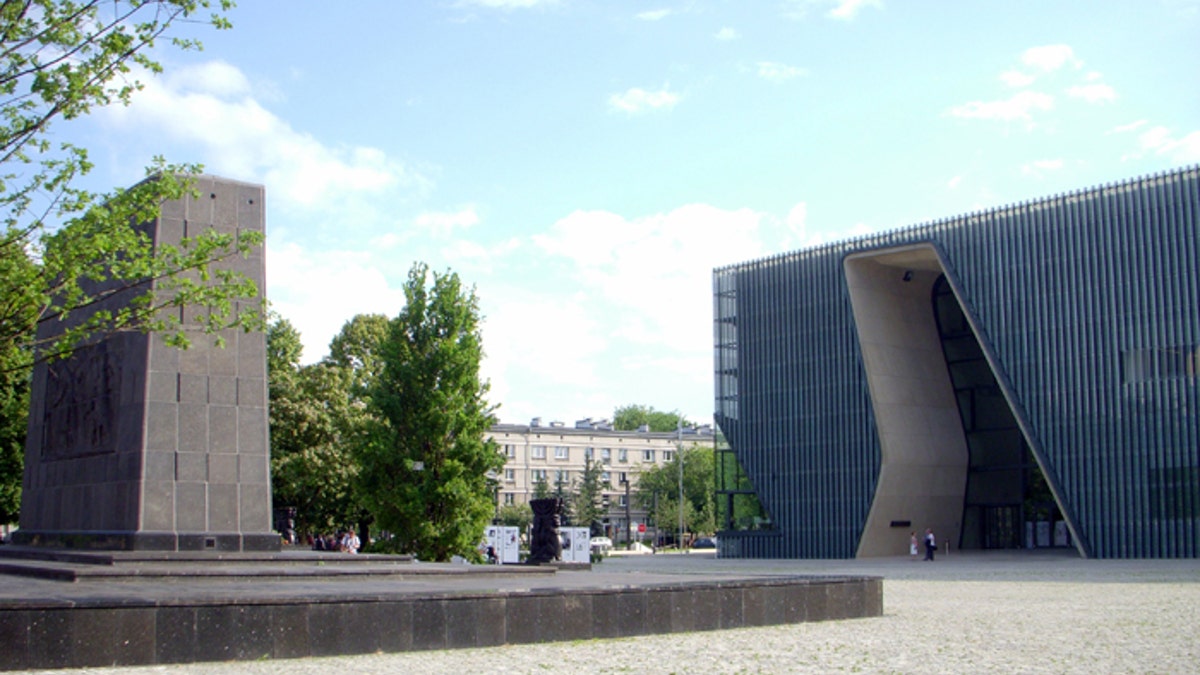
Polish officials hope the Museum of the History of Polish Jews can be a force for educating a new generation on the importance of tolerance and the contribution of Poland's Jewish population.
More than half of Polish youth visit anti-Semitic websites that glorify Hitler and the Nazi era, according to a new poll that has renewed debate about laws governing hate speech and stoked the concerns of Poland’s dwindling Jewish population.
The data, gathered by the Warsaw University Center for Research on Prejudice, was presented to the Polish parliament on Nov. 5. Some participants in the poll embraced such blatantly anti-Semitic statements as “Jews must realize that they themselves made the Poles hate them because of their treason and crimes.”
Twenty-one percent of the youth polled and 19 percent of adults said such hate speech should not be banned, while 14 percent of all those polled said racist language was common in Poland.
The Center’s director Michal Bilewicz, a co-author of the report and assistant professor at Warsaw University, said there were 653 respondents to the poll aged 16 to 18 as well as 1,007 adults.
“What is most important for me is that so many young people accept hate speech,” Bilewicz told FoxNews.com in a telephone interview. “In fact, more than adults. And the young are the future of Poland.”
[pullquote]
Other experts on racism in Poland concur with Bilewicz’s findings.
“Contrary to what might be expected, it is the young who often display anti-democratic and xenophobic attitudes on a mass scale today,” said Rafal Pankowsi, professor of political science at Collegium Civitas, a private college in Warsaw.
But Sigmund Rolat, 85, a Holocaust survivor and major benefactor of Warsaw’s newly-opened Museum of the History of Polish Jews, said Jews are safer and more accepted in Poland than in Western Europe. He said the study gave too much emphasis to a minority of bigots.
“I am dismissing this study because it is overemphasizing the danger from crackpots,” Rolat said.
According to Bilewicz, the failure of Polish courts to enforce laws banning expressions of hate compounds the problem.
“Judges must maintain the fine balance between protecting free speech and banning rhetoric designed to incite hate,” he said.
The poll reinforces the findings of recent studies that show an anti-Semitic tilt among Polish youth. Forty-four percent of Warsaw high school students don’t want a Jewish neighbor, according to a poll of 1,250 students that was released in April of this year, also conducted by the Center for Research on Prejudice.
Piotr Kadicik, president of the Union of Jewish Communities in Poland, found the poll results troubling. The Jewish Telegraph Agency reports him as saying that the prevalence of anti-Semitic attitudes is particularly surprising as there are hardly any Jews in Poland.
Before the Holocaust, there were 3.3 million Jews in Poland. Today, there are an estimated 10 to 20 thousand. Some are affiliated with synagogues, while others have only loose connections. This tiny number of Jews in a country with a population of 38.5 million means that most Poles have never met a Jew.
Professor Dariusz Stola, director of the Museum of the History of Polish Jews, told FoxNews.com in a telephone interview that roughly 25 percent of Poles are anti-Semitic. Stola, 40, a professor on several university faculties, has authored six books and co-edited four, as well as publishing more than 100 scholarly articles on the political and social history of Poland in the 20th century, the Holocaust, international migrations and the communist regime.
Stola said that Polish prejudice is classical anti-Semitism rooted in the belief that the Jews killed Jesus Christ. The Roman Catholic Church has repudiated this view following the Second Vatican Council (1962-65). Stola pointed out that unlike Western European countries such as Germany, France, and Great Britain, Poland does not have young, frustrated Muslim immigrants who fuel the new anti-Semitism found in anti-Israel rhetoric.
“The past matters,” said Stola, who places much hope in the museum with its focus on the Jewish thousand-year presence in Poland. “It’s a way to connect Poland to its multi-ethnic past, especially its Jewish past.”
Stola pointed out that for many years Poland had the greatest concentration of Jews in the world.
“You cannot understand the history of Polish Jews without studying the history of Poland,” he said. “And you cannot understand the history of Poland without studying the history of Polish Jews.”








































